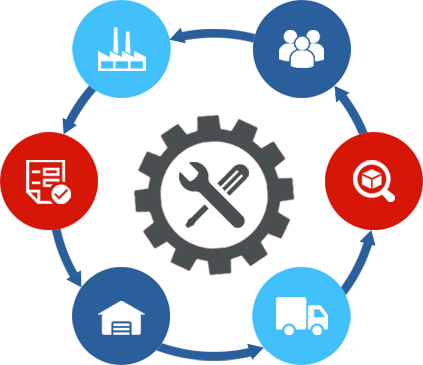Blockchain Provides Unparalleled Supply Chain Visibility

End to end visibility is the holy grail of supply chain management. Visibility is required for precise planning, execution, and resilience. Unfortunately, most organizations have limited visibility of their supply chains. Those that have achieved high end to end visibility have done so using technology that is costly to implement and operate.
Blockchain solutions set a new standard for supply chain visibility. They provide a superior integration model and deliver more realtime information than prior options based on VANs, GDS services, and cloud hubs. Blockchains also allow partners to use flexible formats and automate complex interparty agreements. With blockchain technology, partners are able to optimize their processes to meet their true supply chain requirements. Blockchain technology makes this possible without having to pay and trust a third party.
By sharing data in a trusted, distributed ledger of transactions, each supply chain participant has access to a single, trusted source of truth. This provides the visibility that enables advanced supply chain management capabilities. Blockchain technology, like Hyperledger Fabric, which is built for enterprise use, provides this visibility while allowing trading partners to manage how their information is shared within the network. This allows proprietary transaction information to remain private.














